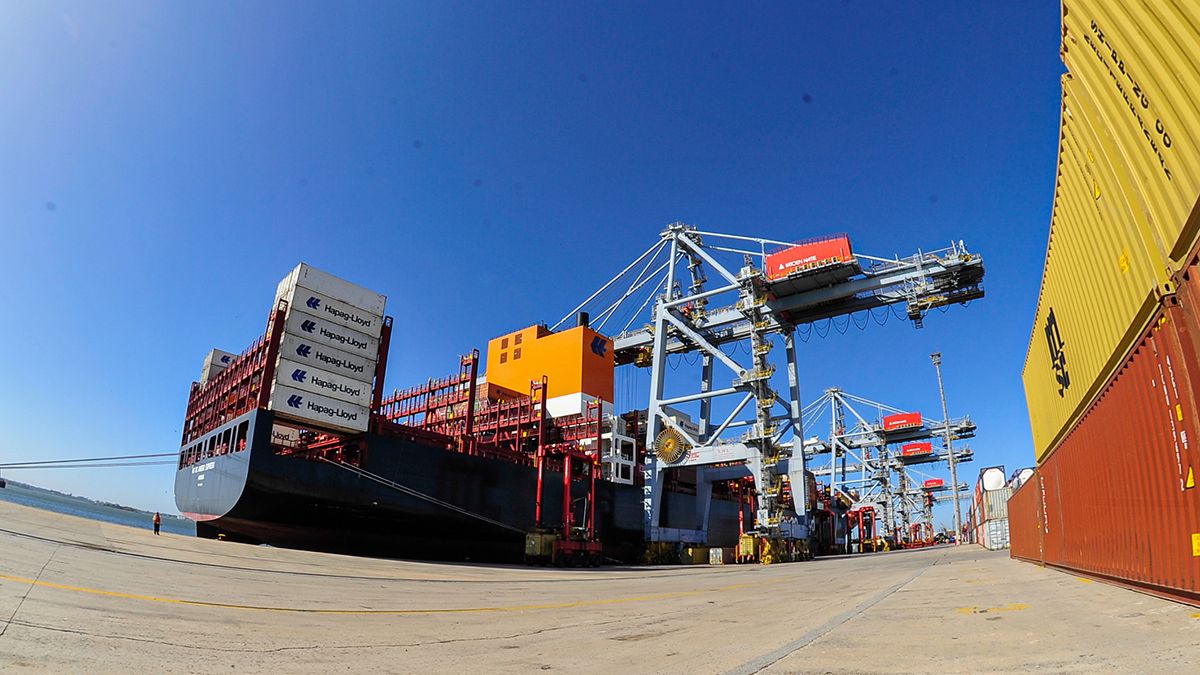Deutsche Post DHL is rushing from one peak to the next, and has repeatedly raised its forecast in recent years. But in the German core business there is a risk of a protracted labor dispute.
At Deutsche Post, the board of directors and the Verdi union are making a new attempt to defuse the collective bargaining conflict that has been smoldering since January. Although the Verdi members, who are active in the German letter and parcel business, have spoken out against an offer from the post office with a clear majority and have declared their willingness to go on an indefinite strike, Verdi is returning to the negotiating table. An overview of the topic.
What is the current status of the collective bargaining dispute?
Verdi wants to push through a wage increase of 15 percent in a one-year contract and justifies this with the high inflation, among other things. The Post rejected the claim as economically unviable. It offers a two-year contract that provides for a two-stage tariff increase from 2024. According to their calculations, the pay of employees would improve by an average of 11.5 percent. Separately, starting this year, employees are to gradually receive 3,000 euros net, which will flow as an inflation compensation premium.
Will there be a strike?
Not for now. Verdi declared the collective bargaining in February to have failed and then carried out a ballot among its members who work in the Post & Parcel Germany division. The result announced on Thursday was clear: 85.9 percent of those questioned were against the postal offer and in favor of an open-ended labor dispute. Nevertheless, Verdi did not want to escalate the dispute any further and initially refrained from calling an indefinite strike. Instead, Verdi returns to the negotiating table.
What’s next?
Tomorrow, Verdi and the postal management will continue the collective bargaining talks. The trade unionists should appear self-confident there, after all they see the clear vote by the workforce as strengthening their position. The postal management emphasizes that nothing will be approved that would make the core business unprofitable and lead to job cuts. Both sides have announced to the outside world that they are sticking to their positions. It is quite possible, however, that the collective bargaining parties are still willing to compromise. There is a lot at stake for Swiss Post: if the negotiations go haywire, there could still be a strike.
When was the last time there was a strike at the post office?
There have always been warning strikes, most recently in February. Such work stoppages are limited in time. However, there was only one indefinite strike after the negotiations had been broken off at Swiss Post in 2015. At that time, new parcel subsidiaries with lower pay caused resentment.
What would be the consequences of a strike for consumers?
During the most recent warning strikes in January and February, millions of letters and packages were left lying around. In relation to the total amounts, however, these were only small percentages. Some recipients were unlucky and had to wait two or three days, others didn’t even notice the consequences of the warning strike. In all probability, it would be different with a strike: there should be considerable delays. According to Verdi, more than 100,000 employees in this division are members of the union – so roughly every second employee would be entitled to strike. In fact, participation is likely to fluctuate and differ from region to region.
How is business at Deutsche Post?
All in all very good. The freight and supply chain businesses are booming, and international parcel shipping and express delivery are also growing in revenue. The core business – domestic letter and parcel shipping – is falling, however, the depressed consumer mood and higher costs for energy, for example, are making themselves felt here. Taken together, all areas of the group achieved an operating profit of 8.4 billion euros (up 5.7 percent) last year. This year, however, the top management is expecting a drop in operating profit due to the economic trend.
How has the post changed?
The originally German company has developed into a major global corporation with a broad portfolio. When Frank Appel became CEO in 2008, letter and parcel shipping in Germany accounted for around 85 percent of operating profit (EBIT), with the rest only accounting for 15 percent. Since then, the group has experienced enormous growth and the situation has reversed: the core business only accounts for 17 percent of operating profit and the rest for 83 percent. This makes it clear: the music is played abroad.
How is the situation inland?
Around a third of the workforce works in the Post & Parcel Germany division – at the end of 2022 there were around 192,000 people. This is where the structural change is noticeable: the volume of letters is falling because people are increasingly relying on digital communication. Parcel volumes, on the other hand, have risen for years because the mail order business is booming. In 2022, the number of parcels transported fell, but that was no surprise given the high comparative level from the corona year 2021. Swiss Post expects growth here again in the future.
What happens on the board?
Former McKinsey consultant Appel has been at the helm of the group since 2008. It will be over in two months: Then the 61-year-old will vacate his top position and the 47-year-old colleague Tobias Meyer will take over. In the future, Appel will concentrate on his work as Chairman of the Telekom Supervisory Board. This means that it remains in another part of the former Bundespost. His successor Meyer knows the Post well, from 2019 to 2022 he managed the core business of the logistician, the Post & Parcel Germany division. Meyer also used to work at McKinsey, and has been with the Bonn-based group since 2013.
Source: Stern




